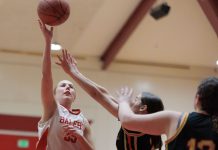By Don Leone
Reading your shots can be a benefit when it comes to correcting
swing problems. If you understand what makes the ball start in a
certain direction and why it curves, it may help you diagnose your
swing fault.
Here are a couple of things you should take into consideration:
One, 70 percent of why the ball curves is because of the angle of
the club face at impact; and two, is the path or plane in which the
club is traveling through impact.
By Don Leone
Reading your shots can be a benefit when it comes to correcting swing problems. If you understand what makes the ball start in a certain direction and why it curves, it may help you diagnose your swing fault.
Here are a couple of things you should take into consideration: One, 70 percent of why the ball curves is because of the angle of the club face at impact; and two, is the path or plane in which the club is traveling through impact.
When giving a lesson, one of the first things I look for is where the ball starts when it leaves the club and how the ball is curving. Also, I look at the impact area to see if there’s a divot.
For example (with a right-handed player), if the ball starts left of the target and then curves to the right, this may create a deep divot. Also, it indicates the path the club is traveling from the outside of the target line on a steep vertical path moving across to the left with the club face open, producing a pull slice. The correction would be to shallow out the swing path, getting the club to travel more from the inside of the target line.
Next, you would need to get the club face squaring and closing through impact. Some of the common problems we see in squaring the club face are the position of the hands on the club and the grip pressure, which is most likely too tight. This will inhibit the wrist to hinge and unhinge properly, not allowing the club head to square at impact. By keeping your grip pressure light and your arms relaxed, this will allow the club to square it self without any manipulation.
The result: You should start to see the ball curving slightly from right to left, plus you will see less divot and more solid contact.
Knowing which direction the ball travels and how it curves will help you eliminate unnecessary swing changes.
Don Leone is the PGA director of instruction at Coyote Creek Golf Club. He writes every other week for The Weekend Pinnacle and can be reached for questions or help at (408) 463-1800, ext. 118, or by e-mail at: dl****@*****************ub.com.









